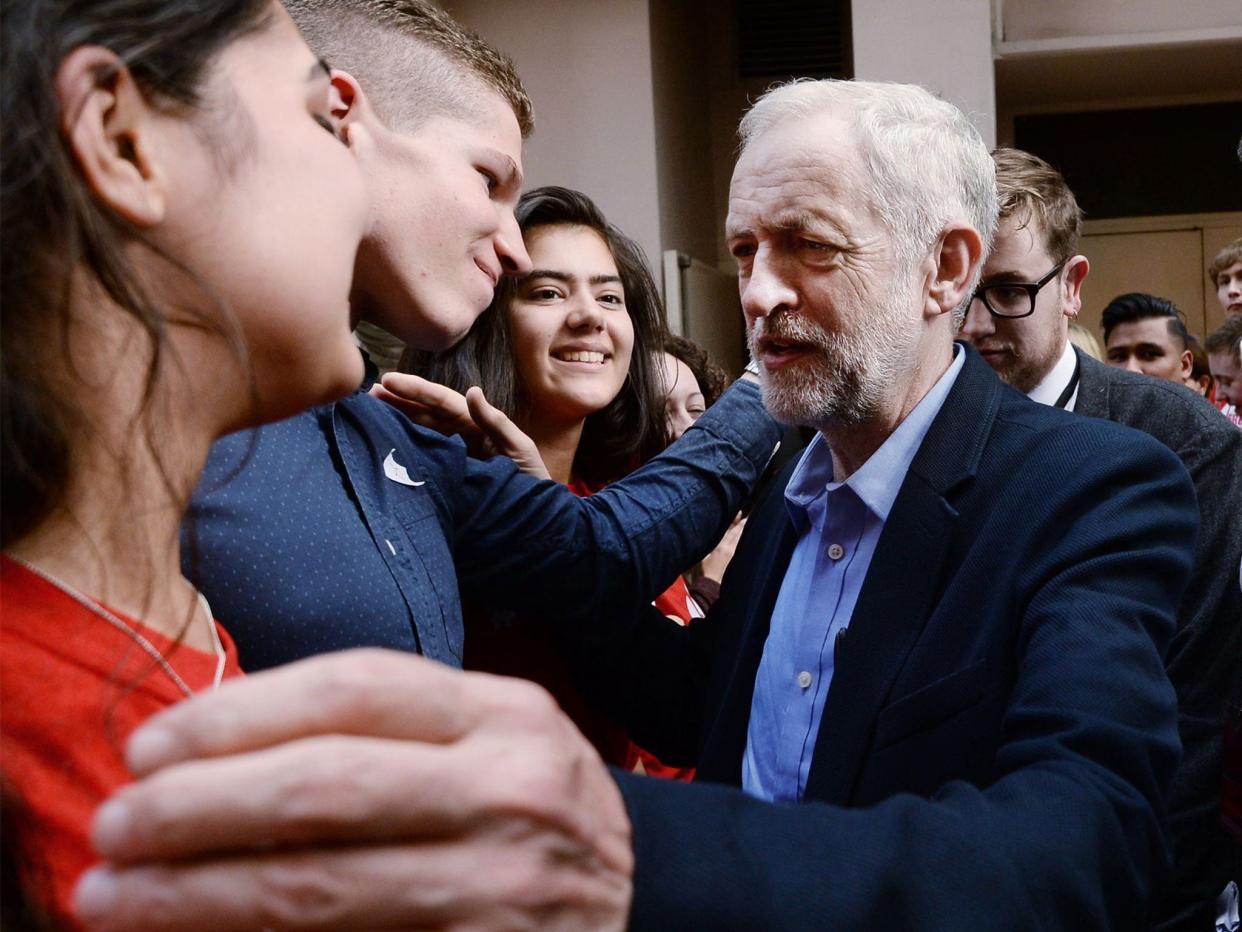Don’t mistake the fresh-faced enthusiasm that Jeremy Corbyn has inspired for a ‘new politics’

No, it is not a movement. It is not the new politics. The 250,000 people who voted for Jeremy Corbyn are the same half of one per cent of the adult population who have always supported the hard left. If they were a separate party, that would be the limit of their vote in elections. That quarter of a million is the maximum number of people who agree with Corbyn and who are prepared to pay £3 to say so.
So don’t mistake the hard left seizing its chance for fresh-faced enthusiasm for a different kind of politics. Although that enthusiasm is certainly there, and not all of Corbyn’s supporters are Trotskyists.
He has fortuitously gathered a temporary coalition around him, including many of Ed Miliband’s former supporters – many of whom have switched without a click in the rails from hailing Miliband as the harbinger of Swedish social democratic paradise to condemning him as part of the long night of Blairite sellout to Thatcherism.
Then there is “that ephemeral group of supporters that always clusters around anything new”. Not my words but those of an astute observer of the Social Democratic Party breakaway from Labour in 1981, a bright young barrister looking for a Labour seat called Tony Blair; they are the same people who clustered around him 13 years later, when he was elected Labour leader. He had about twice as many people voting for him as voted for Corbyn, even allowing for multiple voting in the three-part electoral college that Miliband abolished.
Yes, there was a bit of the “new politics” about then, too, although Blair himself was usually cautious about claiming to represent it. There was also a bit of cautious optimism about the revival of a grassroots Labour Party in 1994.
One or two people might have said unwise things about Labour being a “mass party” again. One of the reasons I thought Blair was impressive was that he had built up the membership of his Sedgefield party to 2,000 by getting permission from the National Executive to run a cut-price membership scheme that allowed people to join for £1.
And, of course, as Blair was carried to the leadership, people flocked to join the Labour Party, taking its membership up from the 266,000 inherited from John Smith to a peak of 405,000 in 1997. That puts Labour’s current total of 325,000 full members, with 15,000 apparently recruited in the 24 hours after Corbyn’s election, in perspective.
It is better to have members, and enthusiastic ones, than not. But a rise in party members is not always a leading indicator of electoral success. The Liberal Democrats have recruited thousands of new members since the general election, too, but Tim Farron’s supporters haven’t allowed themselves to be carried away.
There is a difference, though, between the enthusiasm for the SDP or for Blair and that for Corbyn. They were favoured by the media, whereas Corbyn is not. In his victory speech, he attacked the media twice and did it again, to loud cheers, to his supporters in the pub afterwards. This is not a movement – it is a sense of frustration looking for people to betray it. And although Corbyn’s supporters do tend to be younger than those who voted for his rivals, YouGov’s surveys suggest that this trend is not as marked as some of the breathless puffery suggests. Certainly, from what I have seen of the audiences at Corbyn’s rallies, they have been mixed in age (as well as overwhelmingly white). A lot of young people support him, but there are an awful lot of older people who have drifted away from Labour politics over a long period who are coming back.
For someone like me, whose days as a Labour activist, fighting Militant and other Trotskyists and fellow travellers, defending Peter Shore from deselection in Bethnal Green, the last few weeks have been a nightmare journey back in time – they are all still around, and now they are back, and all trying to get back into the Labour Party.
Corbyn recognised them in his speech on Saturday, saying: “And I say to those returning to the party who were in it before and felt disillusioned and went away: welcome back, welcome back to your party, welcome home.”
They have not “got their party back” – unlike the soft left who saw Ed Miliband as the restoration of John Smith’s party – because they never had it.
The closest the hard left came to winning the party was Tony Benn’s 49.6 per cent share of the electoral college for deputy leader in 1981. Now the hard left have taken someone else’s party and they are going to try to hang on to it, because it is only by pretending to be Labour that they can ever hope to win more than half of 1 per cent of the vote.
Read more
Corbyn is already at odds with his deputy leader
Corbyn victory speech: What he said - and what he meant
Corbyn spent his first morning visiting NHS mental health trust


